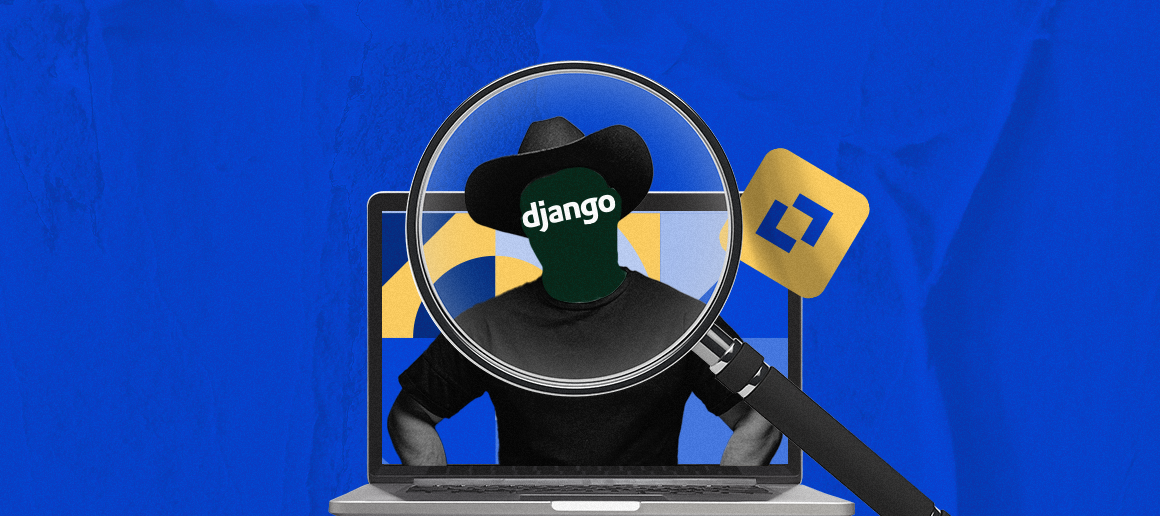While most people might associate the name Django with a particular Quentin Tarantino film, Django developers exist in a different context entirely. For those familiar/with a steadfast position in the web development realm, Django is a high-level Python web framework.
These days, Django continues to power thousands of high-performance, secure web applications from AI-driven analytics platforms to global e-commerce sites. Understanding how to hire Django developers in 2026 is more important than ever.
Its flexibility, speed, and robust security make it one of the most trusted frameworks for scaling modern digital products.
To that end, what does a Django developer do? According to Django’s marketing team, Django developers are perfectionists with deadlines. Or at least this is what the official Django website advertises.
Admittedly, Django development is a bit more complicated than meeting deadlines. Django developers utilize the Django framework for rapid development while using clean and pragmatic code.
They help businesses accelerate product delivery, reduce maintenance costs, and ensure scalability.
At Trio, we connect businesses with elite, pre-vetted Django developers who combine technical expertise with real-world experience within as little as 24 hours sometimes.
Learn more about what a Django developer does right here!
Are you ready to start your development project?
We have the developers you need to take your development project in the right direction.
Companies are proven to grow their business faster with Trio.
What Is a Django Developer?
Before diving into what Django developers do, it’s probably best to give a brief overview of what Django is in the first place.
Django is a Python-based web framework. Though technically the framework follows a model-template-view (MTV) architectural pattern, others have made note that this bears a striking similarity to the more traditional model-view-controller (MVC) pattern.
An MVC pattern would mean that the model references data, the view user interface (UI), and the controller input.
But with an MTV pattern, the template represents the view or UI, and the view corresponds to the controller or input. In its documentation, even Django describes this as a matter of perspective and semantics.
Born in 2005, Django is primarily concerned with easing the creation of complex websites through methods such as reusability, pluggability, and the ‘don’t repeat yourself’ (DRY) mantra.
Essentially, Django aims for less code as well as low coupling — meaning that changes in one module do not affect a related module.
In simpler terms, Django helps developers build sophisticated, data-driven websites faster and with fewer bugs. It provides built-in security features, an admin interface, and strong scalability.
Having this context, a Django developer is a software professional who works within the Django framework to build websites.
They are responsible for developing, maintaining, and optimizing web applications that are clean, secure, and efficient. Django developers handle everything from database management and back-end logic to integrating front-end components.
Given its intentional design, websites made with Django should be fast, secure, and scalable — that is, if the right developers are on the development team.
Django developers also collaborate more closely with DevOps and AI teams, ensuring continuous integration, cloud deployment, and API-driven interoperability with other services..
What Are the Skills Needed for Django Developers?

First and foremost, Django developers should have a sufficient amount of experience working with the Django framework and Python in general.
Naturally, certain aspects of Python, like its use of significant whitespace and dictionaries, and its useful abundance of libraries, are particular to the language. Similarly, Django has unique features to optimize web development.
To use Django to the best of its ability, you need a professional background in Python and the framework itself.
From there on, front-end Django developers should be well-acquainted with the core technologies of web development — HTML and CSS. HTML structures and CSS styles. Usually, JavaScript is a component of these core technologies, but Python should suffice as a scripting language.
With these assets, Django developers can make graphical UIs that will aesthetically please visitors and prompt higher lead conversion rates.
Back-end Django developers should be able to program application programming interfaces (APIs). APIs act as liaisons between software.
If you want to leave a relevant video on your home page, for example, Django developers need APIs to construct compatibility around the video software and the web page programming.
To add, back-end developers must work closely with networks, databases, and servers, warranting their expertise in these areas.
Databases specifically operate via query languages that rely on software such as MySQL or PostgreSQL. Django developers working on the back-end should have knowledge of this type of software.
With the evolving tech landscape, the skill set for Django developers has evolved to include cloud platforms, automation tools, and AI-ready integration. All of this means Django developers need to be able to work with:
- Python 3.12 and Django 5.x
- Django REST Framework for building robust APIs
- Cloud services such as AWS, Azure, or Google Cloud
- Containerization and orchestration tools like Docker and Kubernetes
- CI/CD pipelines (GitHub Actions, Jenkins, GitLab CI)
- Modern front-end frameworks (React, Vue) for full-stack collaboration
- Security best practices and data privacy compliance (GDPR, SOC 2)
How Much Does It Cost to Hire a Django Developer?

In the United States, the average salary for a Django developer is $128,100, with a range of about $101,000 to $140,000 per year.
If you decide to look at freelancers or remote workers, you’ll probably see a far larger range.
Nearshore and offshore developers are significantly cheaper thanks to the lower cost of living, and hiring models like outsourcing and staff augmentation are often cheaper because you only pay for the actual work done.
When looking for people, remember that the cheapest hourly rate isn’t always the best value. Paying a more experienced, faster developer who avoids rework and builds maintainable code can result in lower long-term cost.
6 Steps To Hire the Right Django Developer
Hiring the right Django developer might be harder than you think. Remember the specific features of Django and Python mentioned earlier? Well, you’re going to need to know exactly what those are in order to write a decent job description and set your expectations.
Even though you don’t have to be a tech wizard to do tech-oriented things, hiring a Django developer does require some invested effort.
You can start by doing some research. Trio’s blog has a plethora of articles dedicated to that purpose. There’s an extensive piece on how to hire remote developers.
Remote developers will usher in a greater talent base and reduced prices. Not to mention, remote environments are more flexible and productive.
Location aside, dedicated research can tell you where to look for developers and how to make a listing in the first place.
Step 1: Define Your Project Scope
The first step is to understand exactly what you need built. Be clear about your project’s purpose, functionality, and the technologies it involves.
Are you creating a new platform, extending an existing system, or migrating from another framework?
When you can articulate your requirements, you’re far more likely to attract candidates who already have experience solving similar problems.
Step 2: Choose the Right Hiring Model
Your hiring model shapes both cost and collaboration.
In-house developers bring long-term stability but higher fixed costs. Freelancers work well for short-term or specialized projects, though they often require closer oversight.
Partnering with a dedicated team such as Trio offers the balance of reliability, speed, and flexibility by giving you access to vetted developers who can integrate directly into your workflow.
Step 3: Craft a Compelling Job Description
A well-written job description serves as your first filter.
Instead of listing every possible skill, focus on what success looks like in the role. Mention the frameworks, databases, and tools your project relies on, and give candidates a sense of your company culture and expectations.
A clear, concise description not only attracts the right people but also communicates professionalism from the start.
Step 4: Source Candidates Strategically
Strong Django developers are not just browsing generic job boards. They’re active in specialized communities and trusted networks like LinkedIn and Wellfound, and are curated on talent platforms like Trio.
By sourcing from focused channels, you save time and reach professionals who already have proven experience with modern Django stacks.
Step 5: Evaluate More Than Code
Technical skill is essential, but it’s not the only factor. The best Django developers combine clean, maintainable code with strong communication and problem-solving abilities.
During the evaluation phase, ask about their approach to testing, deployment, and collaboration.
Reviewing past projects or conducting a short live challenge can reveal far more about a developer’s mindset than a multiple-choice quiz ever will.
Step 6: Onboard and Retain Talent
Once you’ve made your choice, focus on onboarding and long-term engagement.
Provide clear documentation, accessible communication channels, and early feedback.
Developers who understand your goals and feel part of your mission are more likely to deliver quality work and stay engaged.
Trio supports clients through this phase by ensuring every developer is prepared to contribute from day one.
Django Developer Job Description Template
You will find that a good job description will attract the most qualified candidates to your job listing. There are some baseline guidelines below that will help you write such a description.
About the Job
First and foremost, you should include a short and sweet brief describing what you are looking for in a future employee. Show enthusiasm.
A basic Django developer job description might look similar to the following:
We’re looking for a skilled Django developer to join our growing engineering team. In this role, you’ll design, build, and maintain scalable web applications using Python and Django. You’ll collaborate closely with designers, product managers, and DevOps engineers to deliver secure, high-performing solutions.
Ideal candidates will have hands-on experience with modern Django stacks, RESTful APIs, and cloud environments such as AWS or GCP. Experience with Docker, CI/CD pipelines, and front-end frameworks (like React or Vue) is a strong plus.
About the Company
Here, you’ll summarize your company and your mission. This is important because job candidates should have an eagerness to work on the projects you’re working on, so they can fully commit to the job.
A company description for Trio would look like this:
At Trio, we focus on building long-term partnerships, and having a personalized approach for each of our clients has helped promote business growth, reflecting directly on our services. We use an intense vetting process to hire the most qualified software developers who can take any company’s project to the next level.
Roles & Responsibilities
At this stage, you should shoot off several bullet points that explain the day-to-day expectations of someone employed in the role you’re listing. Here’s an example:
- Building and maintaining web applications using Django and related technologies
- Collaborating with project owners, designers, and other engineers to define and deliver solutions
- Implementing secure, reusable, and efficient code following Django best practices
- Integrating APIs, managing databases, and optimizing performance for scalability
- Participating in code reviews, testing, and CI/CD workflows
Minimum Qualifications
This is where you should list the minimal requirements and skill set you expect from a potential employee. Your list might look something like this:
- 4+ years of professional software development experience
- Strong proficiency in Python and Django (experience with Django REST Framework preferred)
- Working knowledge of databases such as PostgreSQL or MySQL
- Experience with version control (Git) and modern development workflows
- Solid understanding of security and performance optimization in web applications
- Excellent written and verbal communication skills

Elevate Your Team with Trio AI Talent
Empower Your Projects with Trio’s Elite Tech Teams
Top Interview Questions to Ask Django Developers
Once you’ve shortlisted your candidates, the interview is your best opportunity to understand how they think, solve problems, and communicate. A well-structured interview reveals not just technical competence, but also collaboration style and problem-solving approach.
Instead of relying solely on generic coding tests, focus your conversation on real-world experience. Ask about specific challenges the candidate has faced and how they approached them. This helps you understand whether they can handle the type of complexity your project demands.
Here are a few areas to explore during your interviews:
Begin by asking about their experience building Django applications from the ground up. For example:
“Can you describe a Django project you built recently, including your role and the tools you used?”
This open-ended question gives you insight into their hands-on experience, decision-making, and familiarity with complementary technologies.
Next, assess their understanding of Django’s architecture and performance. You might ask:
“How would you improve the performance of a Django application that’s slowing down?”
This question tests their knowledge of caching, query optimization, and scalability, which are all skills crucial for production-level applications.
Security and reliability are also key topics. Django has many built-in protections, but it’s valuable to confirm that your developer knows how to use them effectively. Consider asking:
“What are some common security vulnerabilities in web applications, and how does Django help prevent them?”
To evaluate problem-solving and adaptability, pose a scenario question:
“If a third-party API integration starts failing intermittently, how would you approach debugging it?”
Answers that mention logging, monitoring tools, and structured testing indicate maturity and practical experience.
Finally, gauge team collaboration and soft skills. Ask something like:
“How do you ensure clear communication when working with remote team members or clients?”
Strong Django developers combine technical excellence with the ability to collaborate effectively, especially in distributed environments.
At Trio, every Django developer we recommend has already gone through this type of in-depth vetting process, ensuring you spend your interview time confirming fit, not filtering for basics.
Conclusion
Hiring a Django developer could mean a more polished and reliable website using one of developers’ favorite languages: Python. What does a Django developer do? Using the MTV pattern and the additional tools courtesy of the framework, developers can do anything from developing UIs to programming APIs.
Want to hire a Django developer? Look no further. Trio has trained and vetted Django developers available for your project. Contact us now to hire qualified Django developers for your project.
FAQs
What does a Django developer do?
A Django developer builds, maintains, and optimizes web applications using the Django framework to ensure speed, scalability, and security.
How much does it cost to hire Django developers in 2026?
In 2026, hiring Django developers costs between $30 and $110 per hour, depending on the region you are hiring from, their experience, and your hiring model.
Is Django still popular in 2026?
Yes, Django is still popular in 2026 thanks to its reliability, security features, and suitability for AI-ready, data-driven web applications.
What skills should you look for when hiring Django developers?
When hiring Django developers, look for expertise in Python, Django REST Framework, cloud deployment, and modern DevOps tools like Docker and CI/CD.






